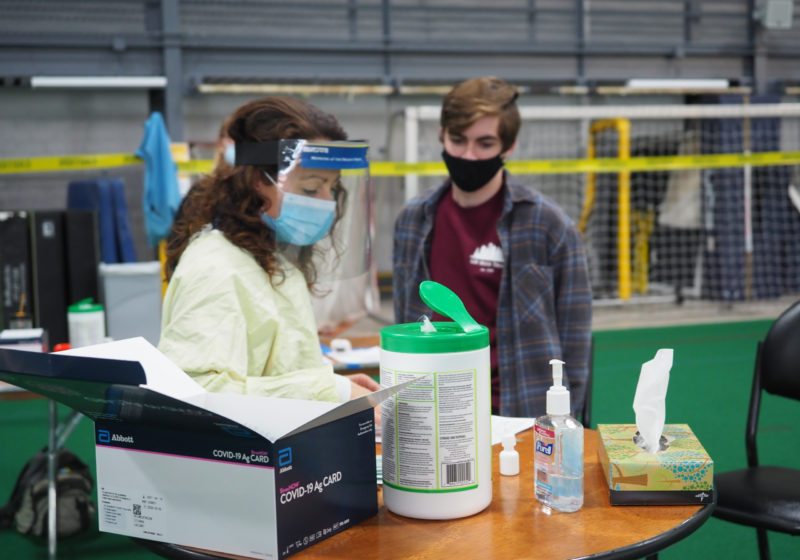To up their surveillance abilities, UR is conducting more Rapid Antigen Tests instead of just RT-PCR tests this spring.
The University’s decision to conduct more Rapid Antigen Tests is a result of more students and parents requesting that the administration increase surveillance testing to ensure that infection rates on campus remain minimal. According to Director of UHS Dr. Ralph Manchester, Rapid Antigen Tests are cheaper than RT-PCR tests and results can be obtained in an average of 15 minutes.
At the beginning of the fall semester, the University Health Service (UHS) was conducting around 400 surveillance tests per week using PCR tests. By the end of the semester, those numbers had risen to around 1,000 PCR tests weekly. With Rapid Antigen Tests, UHS Director of Administration and Finance Ken McNeil said that the University hopes to increase its surveillance testing capacity to around 2,000 tests per week. But max capacity might not be necessary, according to Manchester.
“We will see what happens with the number of positive tests over the next 2-3 weeks and then decide if we need to increase or decrease the number of tests per week,” Dr. Manchester said.
Students generally reacted positively to the new testing format. First-year Thanothii Ganesh preferred the rapid tests because “the PCR is [invasive] and we would have needed to wait for much longer to get our results back.”
Some students like first-year Teona Taseska, who took a PCR test at home in Macedonia before getting a Rapid Antigen Test when she arrived on campus.
“I feel like the University has done so many tests since the beginning of this academic year — which is kind of insane,” said Taseska. “No wonder [UHS] is administering the Rapid Antigen Tests this semester.”
While surveillance testing will be done with Rapid Antigen Tests, people who report symptoms will have to take a PCR test, which is slightly more reliable in determining the status of an individual. They may also take Rapid Antigen Tests to enable UHS to make continuously updated decisions about isolation and treatment.
The biggest impact this has on UHS’s end, according to McNeil, is that there is less strain on UHS staff. “We were able to get support from nurses who work in other departments to do the swabbing [and] we also have received much support from athletics,” McNeil said.
Getting a Rapid Antigen Test is a similarly quick process to that of the PCR tests.
When students, faculty, and staff arrive at the testing site, they are welcomed by the greeter, who confirms that the testee’s Dr. Chatbot is completed. The testee then gets their nose swabbed, and are instructed to wait for 15 minutes, at which point the test is validated. Assuming a negative test, the testee is free to go, and A runner takes the sample to UHS, where the results are entered into the person’s medical records.
Students who are emailed about surveillance testing should sign up online using UHSConnect.





